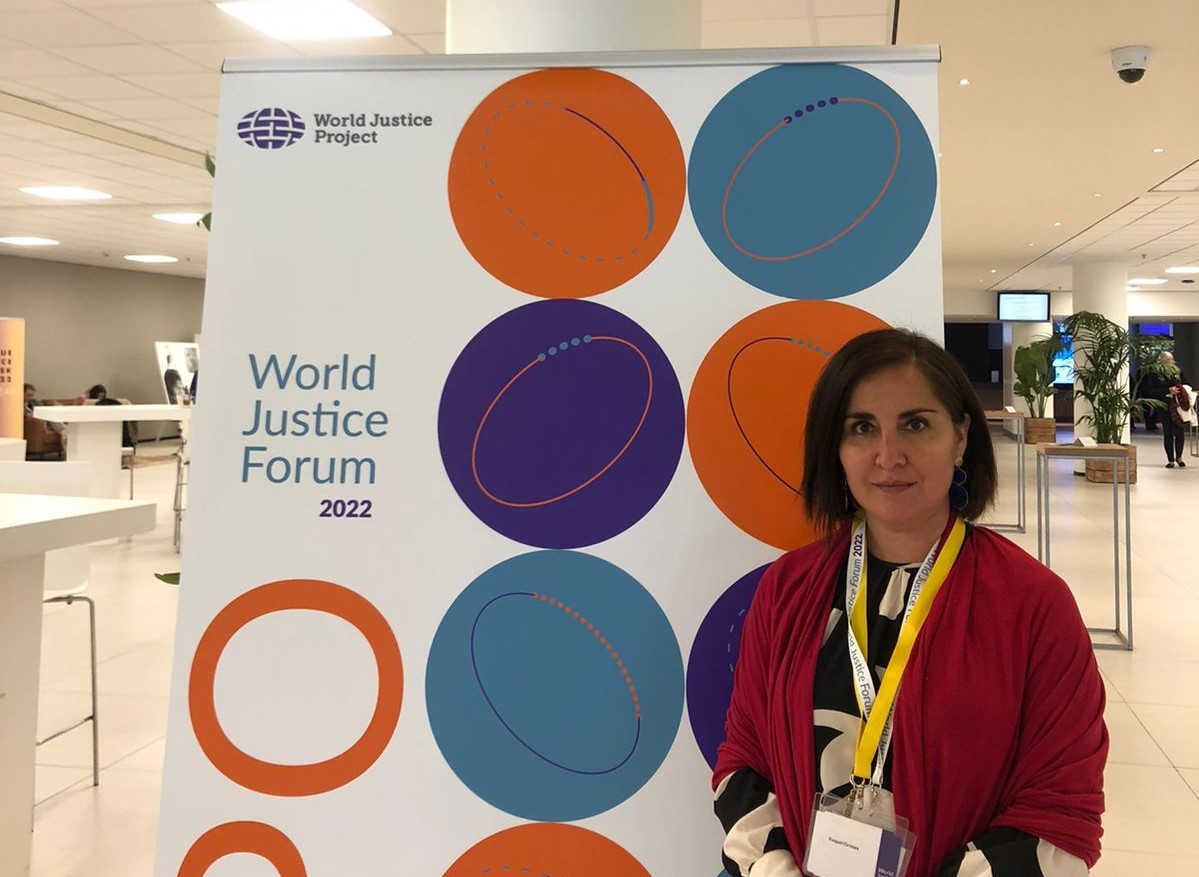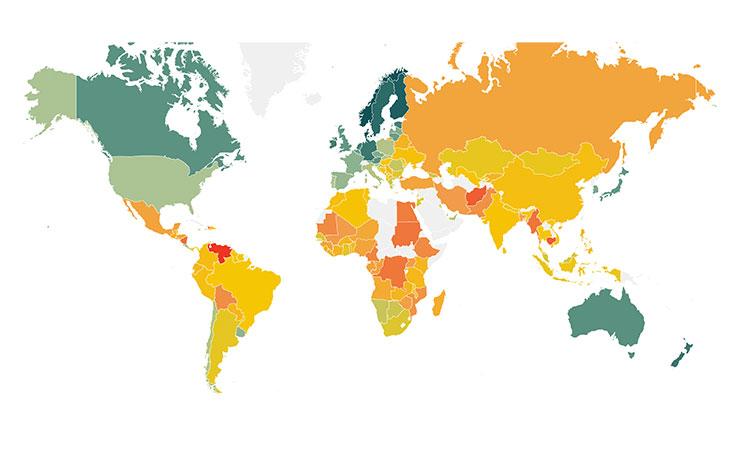

On September 4, Chile rejected the adoption of a new constitution, that would, among other provisions, enshrine gender parity at the national level.
World Justice Challenge 2022 honoree Fundación Multitudes was deeply involved in the lead up to the vote, hosting a series of conversations with women candidates to the Constitutional Convention, feminist activists, and others in 2020 and 2021. It was through these workshops that they recognized that disinformation and online gender-based violence were a barrier that discouraged women from pursuing a political career or even participating in the political arena as advocates and citizens.
WJP recently talked to Paulina Ibarra, Executive Director of Fundación Multitudes, to learn more about their work in Chile, and how, in light of the recent referendum results, they are looking to the future.
WJP: How is Fundacion Multitudes making an impact?
Ibarra: Through our project, the Women’s Observatory Against Disinformation and Fake News, we have trained more than 2,000 civil society leaders, public officials, and journalists to prevent and combat online gender-based violence. We also published two studies on the impact of disinformation on women parliamentarians and members of the Constitutional Convention in Chile. These set the baseline to develop recommendations to the Constitutional Convention of Chile and the Open Government Partnership.
Our recommendations related to the right to universal access to digital connectivity and to information and communication technologies and the right of all persons to a life free of violence in any platform or digital media, with special emphasis on historically excluded groups were included in the recent draft of the constitution.
WJP: With the no vote on the recent referendum in Chile, what was lost for women?
Ibarra: First, women’s leadership is being questioned as the process had gender parity for the first time in the country and it was led by two women as presidents of the Constitutional Convention. Furthermore, potential advancements in the rights of women have been stopped, such as the inclusion of legal guarantees to ensure gender equality, including for non-binary people, as well as coverage of benefits for those engaged in domestic and care work, who are usually women. The new stage that will be opened in the constitutional process will represent a further challenge for women and girls who will have to once again fight for the recognition of their basic human rights in the new constitution, but now with a renewed force.
WJP: How has being a World Justice Challenge participant impacted Fundación Multitudes’s work?
Ibarra: By showcasing the Women’s Observatory Against Disinformation and Fake News at the World Justice Forum 2022, we established connections with like-minded organizations to explore potential areas of collaboration. Second, this accomplishment—being the only Chilean organization participating in this year's edition—was greatly appreciated in the Chilean media, with different media outlets highlighting our work strengthening equal rights protections and promoting the dismantling of systemic inequality.
WJP: How does Fundación Multitudes use the WJP Rule of Law Index?
Ibarra: We use the WJP Rule of Law Index to identify the focus countries for the implementation of our Women’s Observatory Against Disinformation and Fake News program, as it allows us to clearly recognize the state of the rule of law in each country. For example, after reviewing the 2021 Index, we included in the list of focus countries Peru, Nigeria, and the Philippines, considering particularly their performance on fundamental rights.
WJP: What is the ultimate aim of your work?
Ibarra: We dream of a world where international treaties are put together and national legal frameworks—including constitutions—are modified to protect women and girls and other dissidents and vulnerable groups from online gender-based violence and inequality, so they can freely exercise their fundamental rights.
Fundación Multitudes received an honorable mention in the Equal Rights and Non-Discrimination category in the 2022 World Justice Challenge for their Women’s Observatory Against Disinformation and Fake News, aimed at countering disinformation online.






